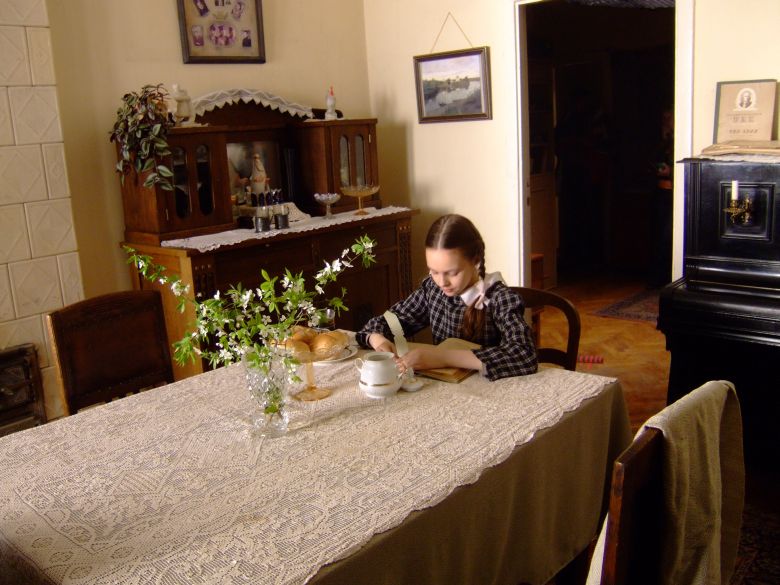Audrius Juzėnas

Audrius Juzėnas’s (born 1963) feature films often contemplate the philosophical and moral issues of whether it is possible to resist evil and save humanist ideals.
From 1989 to 1992, Juzėnas studied feature film directing at the Lithuanian Academy of Music and Theatre. In 1992, he studied film directing and producing at the film Studio TOR in Warsaw under Krzysztof Zanussi. He was programme director for Baltic TV in 1992–93 and has participated in and completed various courses and workshops in co-production and film directing over the past 13 years. His work as a director includes the following documentaries: Dilgėlių vainikas / Wreath of Nettle (1993), Neatrasti skraidantys objektai / UFO (1996–97), which received an award at the dokumentART Neubrandenburg Film Festival; Gyvoji kontrabanda / Live Contraband (1996); and the feature films: Nužudytasis / Murdered (1992), which was awarded First Prize at Debiut’92 in Moscow, and Rojuje irgi sninga / It Also Snows in Paradise (1994). His full-length documentary Fronto linija / Front Line (1999), was awarded the Best Documentary Film Award at the Barcelona International Film Festival. The film is about street kids and how crime and drugs affect their lives.
The war between good and evil in the centre of Europe are themes that appear in Juzėnas’s latest feature works: the Lithuanian-German coproduction Getas / Ghetto (2002–2005), which is based on the famous play by Joshua Sobol, and Ekskursantė / The Excursionist (2013), which is inspired by the real-life story of a young girl who escaped the Trans-Siberian train carrying exiled prisoners to the Gulag in the 1950s. It is the first Lithuanian feature film about the mass deportations of people to Siberia. The Excursionist won the prestigious Russian film award NIKA 2014, the Lithuanian Filmmakers Union award for Best National Film of 2013, and three National Silver Crane awards in 2013.